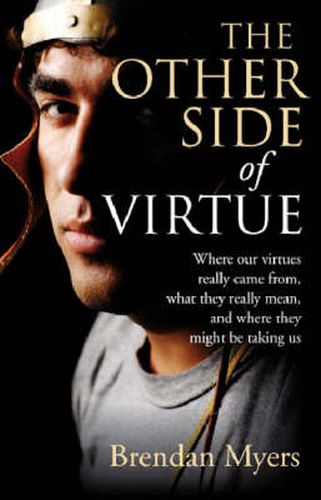Readings Newsletter
Become a Readings Member to make your shopping experience even easier.
Sign in or sign up for free!
You’re not far away from qualifying for FREE standard shipping within Australia
You’ve qualified for FREE standard shipping within Australia
The cart is loading…






The Celts, the old Norse and Germanic people, the Greeks of the time of Homer and Hesiod, and other ancient heroic societies are popularly believed to be tribal warrior cultures, where the light of civilisation had not yet dawned. In fact, this is far from the case. Many of our own most fundamental ideas about politics, justice, friendship, true love, the good life, and especially the notion of Virtue itself, come from their world. To them, virtue had nothing to do with purity, nor modesty, nor God-given laws, nor sin and guilt, nor with any Sunday-school pretentiousness.Rather, it originally meant ‘excellence’ and ‘greatness of soul’. It was tied to more assertive qualities like strength and courage, and to social qualities like friendship. It was also connected to spiritual principles like the nature of the soul, the hope for immortality, and even the pursuit of happiness itself. Using ancient heroic epics and sagas like Beowulf , the Illiad and Odyssey , the Eddas , the Tain Bo Cuailnge , and literature inspired by them including the works of the Renaissance and Romanticism, Shakespeare, Tolkien, and J.K. Rowling, this book explains the world-view that gave birth to our virtues. In that world-view, life involves inevitable confrontations with inexplicable events like fortune, nature, other people, and death itself. However, the good life itself becomes possible when we face them and respond to them. Finally, the book calls for a revival of heroic and classical virtue in our time.
$9.00 standard shipping within Australia
FREE standard shipping within Australia for orders over $100.00
Express & International shipping calculated at checkout
The Celts, the old Norse and Germanic people, the Greeks of the time of Homer and Hesiod, and other ancient heroic societies are popularly believed to be tribal warrior cultures, where the light of civilisation had not yet dawned. In fact, this is far from the case. Many of our own most fundamental ideas about politics, justice, friendship, true love, the good life, and especially the notion of Virtue itself, come from their world. To them, virtue had nothing to do with purity, nor modesty, nor God-given laws, nor sin and guilt, nor with any Sunday-school pretentiousness.Rather, it originally meant ‘excellence’ and ‘greatness of soul’. It was tied to more assertive qualities like strength and courage, and to social qualities like friendship. It was also connected to spiritual principles like the nature of the soul, the hope for immortality, and even the pursuit of happiness itself. Using ancient heroic epics and sagas like Beowulf , the Illiad and Odyssey , the Eddas , the Tain Bo Cuailnge , and literature inspired by them including the works of the Renaissance and Romanticism, Shakespeare, Tolkien, and J.K. Rowling, this book explains the world-view that gave birth to our virtues. In that world-view, life involves inevitable confrontations with inexplicable events like fortune, nature, other people, and death itself. However, the good life itself becomes possible when we face them and respond to them. Finally, the book calls for a revival of heroic and classical virtue in our time.